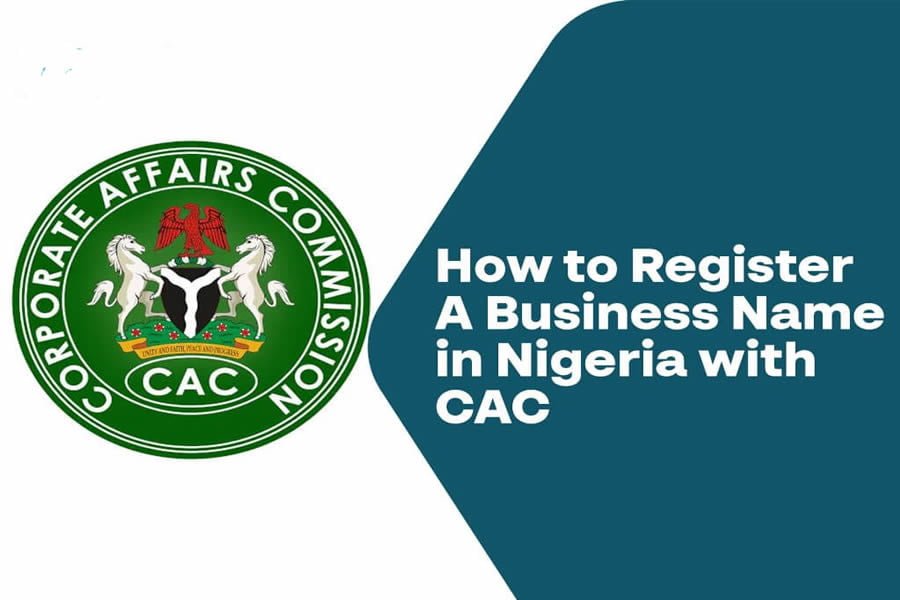All big companies, at the very beginning, started small. Registering your company is one of the first concrete steps you take toward your dream. Although your beginning is small, you have to keep an eye on where you are heading when registering your company.
Name your company based on where you are heading, not where you are right now. In giving birth to a start-up company, you have to think ahead and decide upfront what type of business you want to go into and will venture into in the future, so that you can pick a name that is all-encompassing, rather than keep changing and re-branding as you go, which is a needless expense if you can avoid it.
In Nigeria, all businesses are registered by Corporate Affairs Commission according to the Companies and Allied Matters Act (CAMA) which vests all matters relating to the regulation of registered businesses on the Corporate Affairs Commission. You need to get the services of a lawyer to guide you through this process. Each step you take has legal implications and you need to be well informed.
Business is a team sport, and at this stage, your most important team member is your lawyer. This is the time to get a lawyer if you don’t have one already.
The Companies and Allied Matters Act provide different parts, for the following types of business organizations:
Type 1
Limited Liability Company This is a company where the liability of its members is limited by the memorandum of association to the amount, if any, of shares held by them.
Unlimited Liability Company This is a company not having any limit to the liability of its members.
Company limited by Guarantee This is a company without a share capital and most nonprofit organizations are registered this way.
Type 2
Business Name registrations for Partnerships/Firms and Sole proprietorships
Type 3
Incorporated trustees; Foreign Company (branch or subsidiary of a foreign company); and Representative Office
The Act makes provisions for two or more persons to form a company in Nigeria as long as the laid down requirements for doing so are followed. In the case of foreigners, there are some additional requirements that must be met before they can establish a business in Nigeria. Also, a foreigner or foreign company can only take part in forming a company in line with the laws regulating the rights and ability of foreigners to hold and trade in businesses in Nigeria.
What to do!
Reserve a Business Name
Once you have selected a name for your business (whether Limited, Registered Business Name or otherwise) you need to find out whether you can use it. Under the Companies and Allied Matters Act, you cannot use a name that is the same as, identical with, or too similar to that of another business, for your new business.
Also, you cannot use the word “Nigeria” as part of your business name e.g. Nigeria Fisheries, Nigeria Press, Nigeria Transport, etc. That is reserved for government use. To find out whether a name is available, you must run a search. The CAC claims you can now search online, but that is not yet operational. Once a name is available it can be reserved and, the reservation is effective for 60 days only. If you do not claim the name by making a payment within that period, you will likely lose it.
Reserving a name is necessary only if you are not yet prepared to file the registration documents required by the Commission. As stated earlier, you can reserve a name for 60 days while you get yourself ready. Specifically, you need to file the Application for Availability and Reservation of a Business Name, which presently costs N500.
After reserving your business name, you register the business by obtaining, filling, and returning the registration forms from the Corporate Affairs Commission for a fee, alongside other required documentation. Upon registration, the Commission shall issue you with a Certificate which marks the end of the registration process.
It is a good idea to wait and not order stationery, forms, business cards, and advertising until you get final approval that your documents have been filed and your name is approved. You want to be sure that your application is successful. You also need your RC number in your letter headed paper as a seal of authenticity. There is no fixed duration for this process. It can range from two weeks to six months depending on a lot of factors. The cost varies depending on your start-up share capital.
Requirements for Registration of Company in Nigeria
Below are the requirements an applicant must provide to commence the registration of a company in Nigeria:
- The registered address of the proposed company
- Email and phone number of the proposed company
- Forms of identification such as International Passports and driver’s licenses of the directors/ shareholders.
- Approval note of name reservation from CAC
- Director(s) & shareholders(s) full names, residential address, occupation and date of birth.
- Objects of the company
- Details of the company secretary (mandatory for only a foreign-owned entity)
- Incorporation certificate and company resolution where another registered company (either local or foreign) will be a shareholder or subscriber to the proposed company.
For registration of the company, the below are the steps required:
- Submission of two desired company names for the search
- Preparation incorporation documents
- Complete the Pre-registration form and statement of share capital
- Payment of the Stamp duty and filing Fee
- Uploading relevant documents
- Submission of registration application online.
- Where the registration is approved, the electronic incorporation certificates and other incorporation documents will be issued by CAC.

